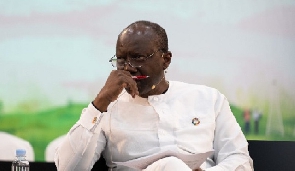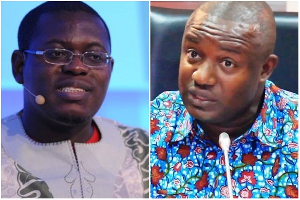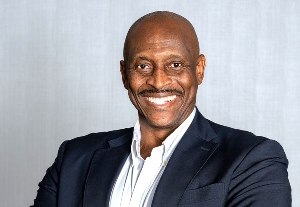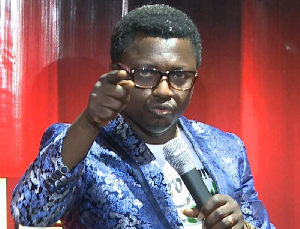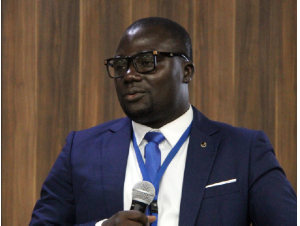Finance Minister Ken Ofori-Atta has reassured Ghanaians that the economy has turned a corner, having faced serious crises over the past two years.
Presenting the Mid-Year Fiscal Policy Review of the 2023 Budget Statement and Economic Policy to parliament in Accra, Mr. Ofori-Atta expressed confidence that the economy is on its way to full recover – which will pave the way for greater economic activity.
“We have turned the corner and, more importantly, we are determined to continue down that path. Soon, we expect the measures taken to result in economic activity greater than anything experienced in the history of the Fourth Republic. Our plans and programmes should soon lead to a sustained increase in domestic production, including manufacturing and farming; replacing many of the products that we are used to importing,” said Ofori-Atta.
Reflecting on the challenges faced in 2022, Ofori-Atta acknowledged the difficult but necessary decision to seek support from the International Monetary Fund (IMF) to implement the Post-COVID-19 Programme of Economic Growth (PC-PEG).
The country was grappling with economic uncertainties and despondency during that period. However, a year later, the finance minister emphasised, the steps taken are more grounded, the vision is clearer and confidence in the economy is gradually returning.
The 2023 budget, presented in November last year, laid out major fiscal and monetary policy measures within the framework of the PC-PEG to address macro-fiscal challenges. Despite the limited fiscal space, government remained committed to pursuing a robust growth strategy. This included attracting both domestic and foreign private sector investments and expanding production – all of which would be encouraged and stimulated by government policies and agencies.
The finance minister then delved into a detailed update on the domestic macroeconomic developments in 2023, presenting data that substantiated claims that the country has turned the corner. The key data points provided included an overall first quarter (Q1) growth showing resilience with a growth rate of 4.2 percent, up from 3.0 percent recorded for the same period in 2022. This growth was largely driven by an impressive 10.1 percent expansion in the services sector.
He further noted the easing headline inflation during the first half of 2023, falling from a peak of 54.1 percent in December 2022 to 42.5 percent in June 2023. This he alluded to monetary policy tightening, relative stability in the exchange rate, and lower and stable ex-pump petroleum prices.
Mr. Ofori-Atta highlighted the cedi’s relative stability, depreciating by 22.1 percent from January to July 2023 compared to 21.1 percent over the same period in 2022, showing improved economic conditions.
Total export receipts decreased by 7.9 percent due to lower crude oil exports, while the current account recorded a provisional surplus of US$849.16million (1.1 percent of GDP), a notable improvement from the deficit in 2022. By June 2023, Ghana’s gross international reserves reduced to US$5.3billion (2.5 months of import cover) as part of the Bank of Ghana’s efforts to reduce foreign liabilities under the IMF programme.
Nonetheless, net international reserves received a boost from gold reserves – reaching US$2.4billion (1.1 months of import cover) compared to US$1.44billion in December 2022.
Moving on to the 2023 half-year fiscal and debt developments, provisional data on government fiscal operations for the first half of 2023 indicated a slower pace in expenditure execution relative to revenue shortfall.
As a result, the overall budget deficit on a commitment basis stood at GH¢6.3billion (0.8 percent of GDP); significantly lower than the 2023 H1 budget deficit target of GH¢28.3billion (3.5 percent of GDP).
The corresponding primary balance (on commitment basis) reflected a surplus of GH¢8.8billion (1.1 percent of GDP) compared to the target of a GH¢310million surplus. Additionally, the overall cash deficit reached GH¢10.3billion (1.3 percent of GDP) against the 2023 H1 budget target of GH¢35.49billion (4.4 percent of GDP).
The fiscal balances were mainly driven by Total Revenue and Grants of GH¢59.3billion (7.4 percent of GDP), slightly below the target of GH¢64.7billion (8.1 percent of GDP) due to lower-than-programmed oil receipts. Total expenditure of GH¢68.5billion (8.6 percent of GDP) was also 26.3 percent below the programmed expenditure of GH¢92.9billion (11.6 percent of GDP), primarily attributed to the containment of various expenditure lines except for compensation of employees and expenditure on goods and services.
Throughout his speech, the finance minister emphasised the importance of prudent financial management and protecting workers’ interests in the face of challenges. He commended the support and commitment of parliament and the Ghanaian people in achieving positive outcomes.
“I can now report that we have been diligent and resolute in implementing these measures, and successfully negotiated the US$3billion 3-year IMF-ECF programme, which was approved on 17th May, 2023 to support the implementation of our PC-PEG,” Ofori-Atta declared, highlighting the success of government’s efforts.
Business News of Tuesday, 1 August 2023
Source: thebftonline.com





